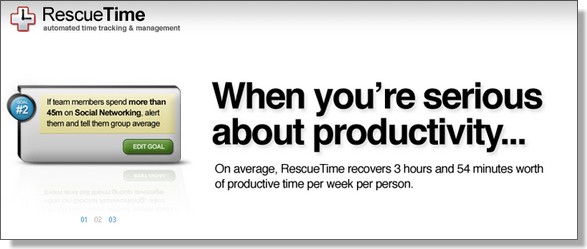Even after spending hours behind a computer screen, we’re often surprised by how little we get done during a workday, reports The Wall Street Journal.
Indeed, frittering time away is epidemic in the office: A 2007 survey of 2,000 workers from Salary.com Inc., a Web site that provides compensation data, found that Americans waste about 20% of their time at work; with 34.7% of those surveyed saying surfing the Internet is the biggest distraction.
An emerging crop of software now aims to make individuals more conscious of how they spend their screen time. Previously meant for free-lancers looking to keep track of billable hours, software developers are realizing that time-management applications are useful for anyone who wants to track which Web sites they visit and how much of their day is spent on certain work tasks or computer applications.
Some services record and categorize users’ computer activities–often allowing workers to classify chunks of time as either productive or unproductive. Other services operate by having users set goals for how much they’ll get done in a set period of time.
“Multi-tasking is a complete myth,” says Peter Bregman, a time-management expert and chief executive of Bregman Partners Inc., a management-consulting company. “We lose time in the switch from one task to another,” since it takes time for the brain to adjust to each project.
Tony Wright co-founder of Seattle-based RescueTime Inc., a time-tracking software company, agrees. In an October data audit, Mr. Wright found that RescueTime users switch to an instant message window 71 times per day, which means every 5.2 minutes or 11.5 times per hour. Users to the site visit an average of 57 Web sites or applications per day, he says.
One nice feature: The service spit out a summary showing what percentage of our total time was spent with each application (like a Microsoft Word document) or Web site. The graphs also showed when our computer was idle, which helped us see how many little breaks we tend to take throughout the day.
All in all, the services really helped us get a handle on how we spend our work time. And having a written account of where our minutes went pushed us to modify our work habits–and get more done. The guilt element was motivating, too: Just knowing that the length of our Facebook session was going to be recorded made us think twice about lingering.
Photo by Rescue Time.
